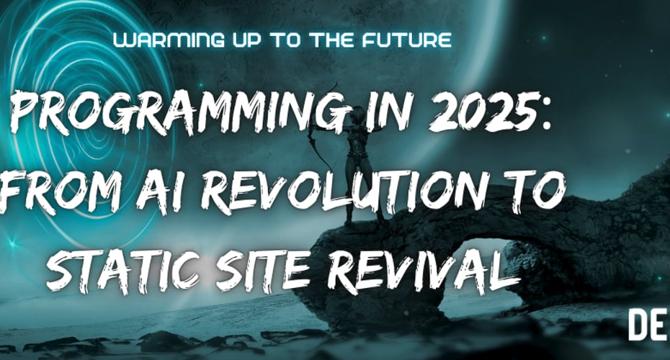Dev
1M
291

Image Credit: Dev
2025 Tech Trends: What's In, What's Out, and What You Need to Know
- The rise of memory-safe languages like Rust and tools like Docker and GraphQL is gaining momentum in software development, while programming practices such as increasing cloud bills and imperative paradigms in complex systems are fading out.
- Repatriation of workloads is becoming popular as companies bring workloads back to on-premises servers. AI-powered coding tools like GitHub Copilot automate development by suggesting code, debugging, and refactoring. Rust’s focus on memory safety and concurrency is a modern alternative to C/C++. and WebAssembly (Wasm) is revolutionizing web performance by allowing developers to compile languages like C++ and Rust into fast, lightweight bytecode.
- DevOps and CI/CD pipelines, using tools like Docker, Kubernetes, and GitHub Actions, are becoming increasingly essential for consistent integration and deployment, while manual deployment practices are becoming obsolete.
- Functional programming languages like Haskell and Scala excel in managing concurrency and immutability. Serverless architectures, using platforms like AWS Lambda and Google Cloud Functions, are ideal for event-driven workloads and scale seamlessly with demand, reducing infrastructure overhead.
- Other trends to watch include proficiency in cloud platforms like AWS, Azure, and GCP, containerization with Docker, and the rising popularity of static site generators (SSGs) for creating fast, SEO-friendly, and scalable web experiences.
Read Full Article
17 Likes
For uninterrupted reading, download the app